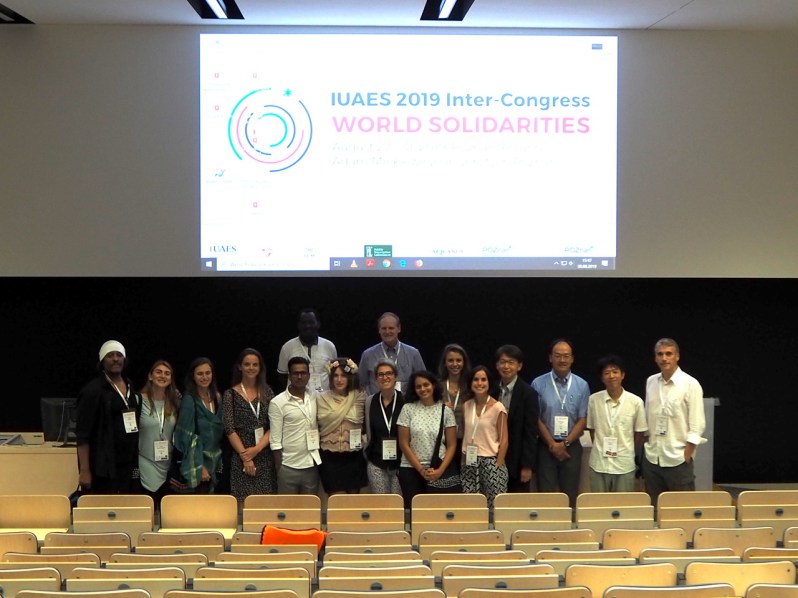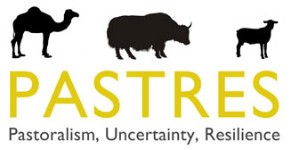By Mathilde Gingembre, PASTRES Affiliate researcher
Half-way between the European capitals of Warsaw and Berlin, the beautiful Polish city of Poznan recently hosted the annual IUAES (International Union of Anthropological and Ethnographic Studies) conference. This year’s conference revolved around world solidarities, looking at the role of anthropology in exploring and reviving solidarities in a global context marked by the rise of exclusionist ideologies.
Pastoralism was a prominent theme of the conference, thanks to the active involvement of the Commission on Nomadic Peoples (CNP) and the four panels it organised around pastoralism: Lands of the Extracto-cene: The Extractive Industries, Climate Change and Mobile Pastoralists; Researching Pastoral Solidarities: Exploring Methods and Frameworks; Pastoralists and Resilience: Rethinking the Inside and Outside Perspectives of the Pastoral Communities; Nomadic people and the city.
Across four days, researchers from the fields of social anthropology, but also feminist geography, development studies, new ecology, and socio-legal studies, sat together to discuss the diversity and dynamism of pastoralists’ trajectories around the world.

Global changes, local adaptations
The one recurrent theme across papers was that of change. Far from the stereotypes of static, archaic traditionalism that are still associated with pastoralism, contemporary pastoral populations are evidently experiencing fast change. The shifts in political economies, governing regimes and ecologies that have been reshaping our planet in the past decades are also having a profound impact on these “last frontiers”. Neoliberalism, climate change, demographic growth, accelerated urbanisation, transnational politics, globalised markets, “land grabbing”, transnational terrorism, proxy wars and security politics are all major global phenomena that are affecting pastoral systems, landscapes and livelihoods.
On many levels, pastoralists’ pathways of adaptability are undermined by such global processes. What researchers in Poznan also highlighted, however, was that those pressures are also leading to the invention of new mobilities, new economies and new connectivities.
Most presentations highlighted the decline of a certain mode of pastoralism, with symptoms such as the emptying of pastoral lands, the industrialisation and urbanisation of pastoral landscapes and sedentarisation. Causes for these developments are multiple. In some cases, they reflect brighter horizons, as for those younger generations who move to the cities to access new education and job opportunities. In other places, the move out of pastoralism results instead from externally-driven pressures such as mining booms, foreign land acquisitions for commercial farming ventures, security issues and the general dynamics of rangeland privatisation and fragmentation and related loss of pastures. All these dynamics are constraining mobility patterns and leading to livelihood losses, but also environmental degradation and impacts on human health.
Diverse forms of resistance
On the ground, reactions of pastoral populations are diverse and contrasting. As local studies of “land grabbing” have shown, there is no such thing as a unified resistance against the penetration of corporate capital into pastoral areas. Quite a few papers presented in Poznan confirmed that there is some interest from pastoralists in the new livelihood opportunities, better connections to markets, knowledge exchange and potential financial benefits that are tied to extractive developments.
Transnational, national and village politics matter in influencing whether pastoralists would raise complaints when they felt developments were threatening or unfair. In Russia, for instance, civil society capacity to defend pastoralists’ rights has been hampered by a recent law seriously undermining their abilities to raise foreign funds. In Niger, Tuareg pastoralists have been organising to ask for a better redistribution of revenues from uranium, but protests over the health risks caused by radioactivity were left unheard.
With better access to education and markets and the increasing power of transnational justice and activism, pastoral populations are simultaneously developing new abilities and finding new means to defend their rights. In Mongolia, for instance, herder-activists have negotiated significant concessions from mining companies. Some of them have done so by triggering international grievance mechanisms on the basis of being “indigenous”. The fact that these legal framings are being mobilised whereas Mongolian pastoralists had never called themselves “indigenous” reflects the increasing role of INGOS, transnational law and corporations in shaping social movements and new governance regimes. It also highlights the capacities of pastoral populations to invent new subjectivities, as illustrated by the Karamojong of Uganda in their efforts to resist political pressures in the contexts of insecurity in which they live.
Pastoral resilience also lies in reinvention, as was discussed in the case of the Rabari of western India and of the Yoruks of Anatolia where mobility is continuing, despite pressures to abandon nomadic pastoral livelihoods. The Il Chamus community of northern Kenya provided a good illustration of the path of economic diversification that many take in order to fend off the impact of socio-economic and environmental pressures whilst keeping a foot in the pastoral economy and way of life. In Bavaria, as well as in Kyrgyzstan, new institutional forms of rangeland management are constructed on the sediments of history in order to preserve the importance of “commons” against a backdrop of land individualisation and privatisation. The Bara of Madagascar, the Torghuts of Mongolia, the Tuareg of Mali and the Raikas of India provided interesting examples of how community support mechanisms may survive despite dynamics of individualisation, marketisation and social differentiation. However, inequalities were nevertheless simultaneously shown to translate into differential abilities to accommodate pressures: whilst some people are moving up in pastoral economies (as middlemen selling milk or absentee owners for example), others move out without viable alternatives.
Methods and concepts
Researchers present at the IUAES reflected on the research methods mobilised in current studies of pastoralism, building on the observation that progress in the theoretical field has not been followed by concrete advances in methodologies. Strong calls were made for the mobilisation of pastoralists’ own concepts, terminology and norms as a powerful avenue for challenging some longstanding misconceptions regarding pastoralists’ “vulnerabilities”, conflictualities, irrationalities and environmentally harmful livelihoods. Gaps in research such as those concerning the study of zoonotic diseases in the context of displacement were highlighted.
The papers from the resilience panel challenged conceptual framings around mainstream representations of resilience. Presenters called for a reflection on the way researchers should engage with a concept that has come to dominate policy and development discourses and interventions. Encouraging the adoption of a constructivist vision of resilience “from vulnerability towards potentiality”, researchers emphasised pastoralists’ productive use of highly variable environments. Conceptualisations of mobility were also discussed with talks insisting on the fact that moving, in these non-equilibrium contexts, was as much “a way of being” as it was a productive strategy. Researchers also highlighted the limitations that came with bounded categories such as “nomadic”, “semi-nomadic”, “sedentary”, and case studies highlighted urban-rural connections and exchanges as an integral part of pastoral identities and economies.
From reflection to action
After the conference, emails poured in to thank the Commission on Nomadic Peoples and the organisers of those four panels for such a great event. The friendly atmosphere encouraged constructive, in-depth discussions and laid the ground for new or consolidated collaborations around research on pastoralism. The ambitious research work of PASTRES and of the Commission on Nomadic Peoples on pastoralism makes for a clear momentum to explore and highlight the lessons that can be learnt from the way pastoralists respond to uncertainties. How we manage to engage policy and development sectors in these vital debates is now crucial.
Main photo credit: Julen Ruiz Luzuriaga. (CC BY-NC-ND 2.0)
